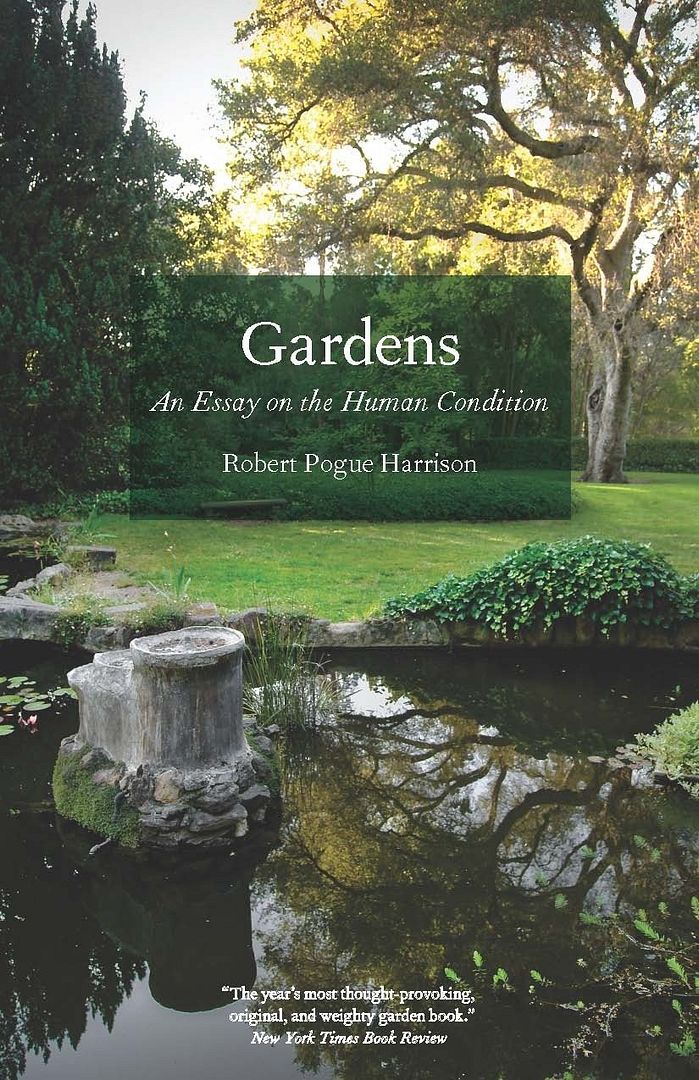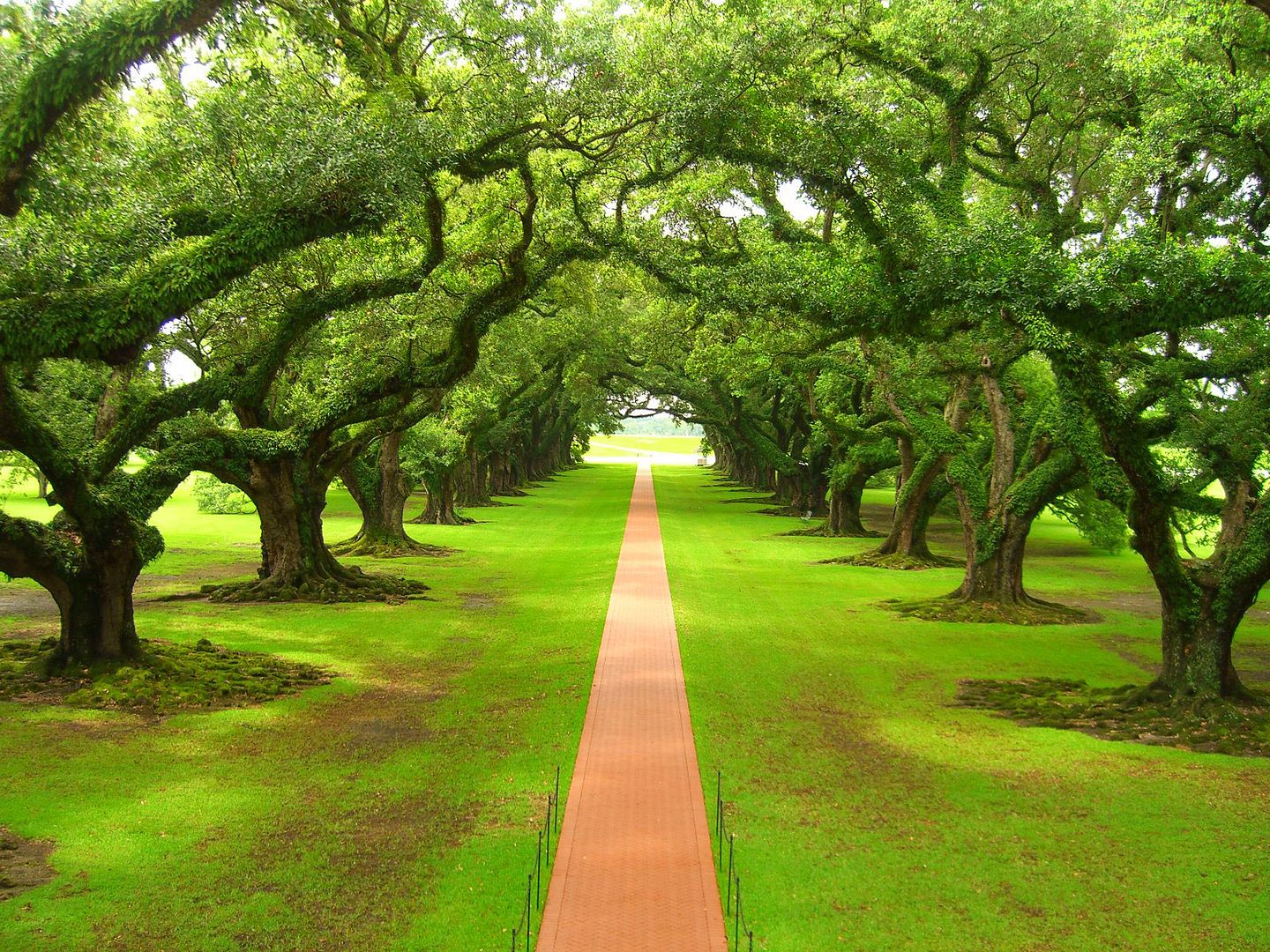I’m more than a little overexcited at the prospect of hearing Professor Harrison speak at the latest iteration of Natural Discourse entitled “Culture & Cultivation,” to be held October 10, 2013, in Berkeley, California. The previous Natural Discourse programs were held at the nearby University of California Botanical Garden at Berkeley, which is a stunning setting but limited seating capacity. Co-Curator Shirley Watts found a gem of a new venue, a historic hotel designed by Julia Morgan, The Berkeley City Club. In one stroke, Shirley nailed two of my obsessions: visiting old hotels and listening to clever people discuss why we make gardens. Shirley explained her process for the selection of speakers as simply a matter of “Who do I want to hear“? And having attended the previous ND seminars, I can vouch for her amazing instincts in assembling a riveting series of talks. Never underestimate this woman. This time she’s done it again, including persuading Robert Pogue Harrison to contribute, someone I’ve been following through his pieces for The New York Review of Books and author of:

Oh, and just a tip when ordering tickets: There is a new, very reduced rate for students and “starving artists,” less than half of a general admission ticket. Starving artists, you know who you are.
Spread this link on Facebook, on your blogs, because I’m selfishly hoping for Natural Discourse IV, V, VI…etc. As far as I know, there’s no other programming like this out there. And with each successful Natural Discourse, there’s a greater chance this program will eventually reach your community.
In honor of the occasion, I’m reviving a two-year-old post that includes a link where you can listen to the mellifluous voice of Professor Harrison.
* * *
Strange how, even in the most unlikely places, thoughts can still turn to gardens. Jury duty last week had me confined for a good part of Friday in a large, drab room full of strangers, all of us potential jurors awaiting selection for a trial. 8:00 a.m. to 11:30 a.m., lunch break until 1:00 p.m., finally excused at 2:30 p.m., my juror services ultimately never required. I had expected to be there until 5:00 p.m., so when early dismissal was announced I practically skipped down the courthouse hall. Expecting a long, chair-ridden, time sinkhole of a day, I had grabbed a huge amount to read, including The New York Review of Books of October 13, 2011. (Seems I rarely read entire books anymore, just reviews.) Sometime mid-morning, deep in a review of the Shakespeare scholar Harold Bloom’s latest book, “The Anatomy of Influence: Literature as a Way of Life,” the writer of the review was so impressive and his bio in the NYRB so brief that I had to google him on the courthouse’s computers. (Thoughtfully, the courthouse had provided five computers for potential jurors to share.) Among many scholarly works, Robert Pogue Harrison, Professor of Italian Literature at Stanford, published a book in 2008 with the intriguing title “Gardens: An Essay on the Human Condition,” and an excerpt from this essay subtitled “The Vocation of Care,” could be brought up on the courthouse computer (found here). The long day was now whizzing by in a gluttony of reading, the likes of which I hadn’t experienced since my last plane or train journey. In this essay Prof. Harrison explores the myths of Eden and how they drive our age and history. He feels that faced with the prospect of living forever in paradise, as Odysseus was on the island of Kalypso, humans would wish desperately to return to their homes and care-ridden lives, “For unlike earthly paradises, human-made gardens that are brought into and maintained in being by cultivation retain a signature of the human agency to which they owe their existence. Call it the mark of Cura.”
Prof. Harrison recounts the parable of Cura, or Care:
“Once when Care was crossing a river, she saw some clay; she thoughtfully took up a piece and began to shape it. While she was meditating on what she had made, Jupiter came by. Care asked him to give it spirit, and this he gladly granted. But when she wanted her name to be bestowed upon it, he forbade this, and demanded that it be given his name instead. While Care and Jupiter were disputing, Earth arose and desired that her own name be conferred on the creature, since she had furnished it with part of her body. They asked Saturn to be their arbiter, and he made the following decision, which seemed a just one: ‘Since you, Jupiter, have given its spirit, you shall receive that spirit at its death; and since you, Earth, have given its body, you shall receive its body. But since Care first shaped this creature, she shall possess it as long as it lives. And because there is now a dispute among you as to its name, let it be called homo, for it is made out of humus (earth).'”

image source unknown
“While care is a constant, interminable condition for human beings, specific human cares represent dilemmas or intrigues that are resolved in due time, the way the plots of stories are resolved in due time…in general human beings experience time as the working out of one care after another.
“Here too we find a correlation between care and gardens. A humanly created garden comes into being in and through time. It is planned by the gardener in advance, then it is seeded or cultivated accordingly, and in due time it yields its fruits or intended gratifications. Meanwhile the gardener is beset by new cares day in and day out. For like a story, a garden has its own developing plot, as it were, whose intrigues keep the caretaker under more or less constant pressure. The true gardener is always ‘the constant gardener
.'”Yesterday I found this audio clip of Prof. Harrison ruminating on the jacaranda tree in the quadrangle outside his window at Stanford, and how “cultivation” is an apt word for expressing the kind and depth of attention required to sustain a garden, an education, a democracy. So far, I’ve only listened to this part 1 of 4 and will catch the rest this weekend.

I have this book !!!
I sure would love to attend this, but schedule conflicts have to be dealt with. We shall see.
Jealous! I love Berkeley, Julia Morgan, and this book!
I’ve bought and given away more copies of Gardens, an essay on the human condition, than I can count. Its absolutely brilliant on why we gardeners do what we do
FYI Denise, Robert read this post and really liked it. When I meet him recently, he took me to two gardens on the Stanford campus, the one on the cover of the book and the sculpture garden that was made by a group of artists from Papua New Guinea that spent a year at Stanford. It is a wonder. You and Mitch should visit both of those if you come for the symposium.
Best,
Shirley